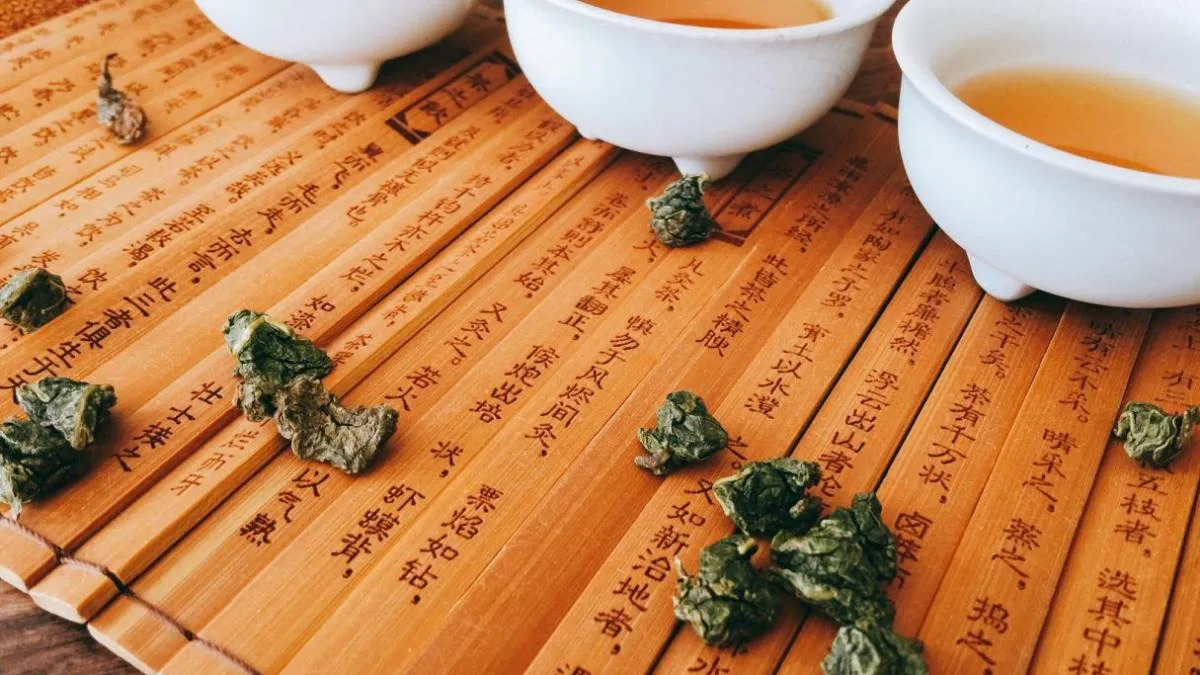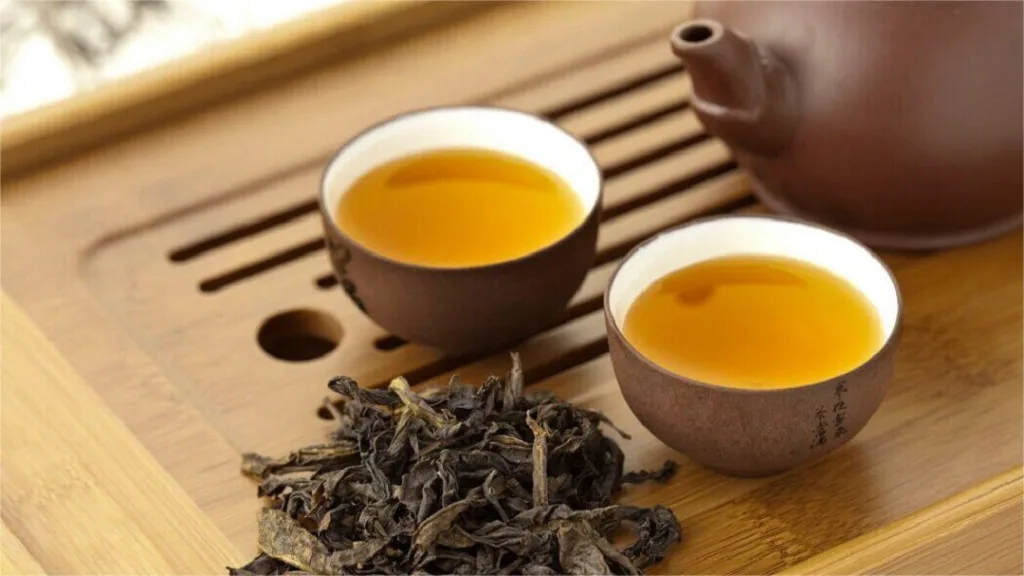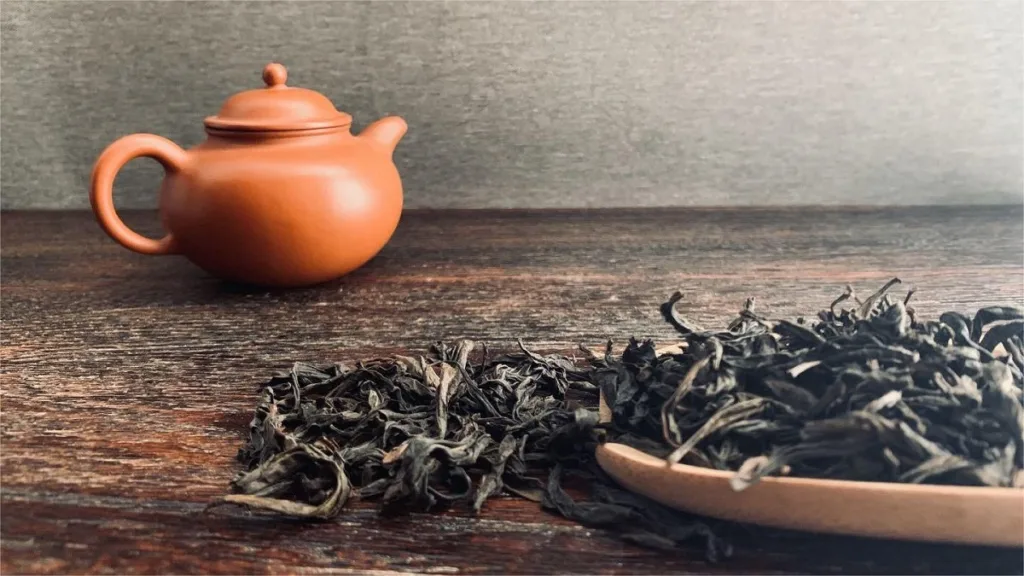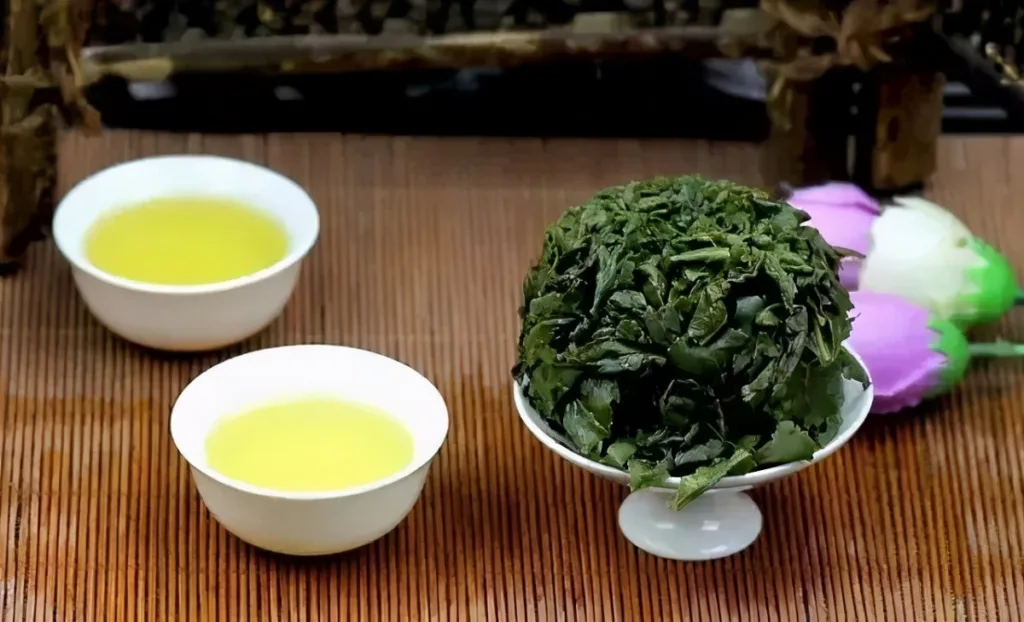Agarwood tea, also known as Oud tea, is a type of oolong tea originating from the majestic Mengding Mountain in Sichuan, China. It is renowned for its unique combination of characteristics borrowed from both black and white teas, resulting in a distinct and exquisite flavor profile. Agarwood tea is celebrated for its “fruit and camphor aroma,” with a taste that is robust, refreshing, and rich, marked by sweet fruity notes and long-lasting, intense camphor undertones. Its history traces back to the Tang Dynasty’s Yuanhe era when Mengding tea was classified as a tribute to the imperial court.
History
The legend surrounding the origins of Agarwood tea dates back to a time when Liyang Wang embarked on a treacherous journey to Sichuan along the arduous Sichuan Road. He faced numerous difficulties, including the lavish feasting of local officials and nobles along the way, which led to discomfort and ailments such as bloating, headaches, leg heaviness, and overall fatigue. Upon reaching Mengding Mountain, he found solace at the Lohan Temple, now known as the Thousand Buddha Temple.
Li Yang Wang offered his prayers at the temple, seeking blessings for a safe and prosperous journey. After enjoying a cup of tea offered by the temple’s monks, he felt a refreshing and invigorating sensation. His symptoms disappeared, and he was able to eat three bowls of temple rice with delight. He asked the monks about the tea, and they replied, “It is a common commodity here.” Li Yang Wang soon recovered and revisited the Lohan Temple to express his gratitude, even sponsoring the carving of a Moya monument in the temple, which reads “Agarwood” or “罗汉沉香.”
Brewing Method
To truly appreciate the aromatic charm of Agarwood tea, it’s essential to choose the right tea utensils. When serving guests, opt for Yixing purple clay teapots or small lidded bowls. For teacups, use delicate white porcelain cups or pair aroma cups with tasting cups to fully experience the tea’s aroma. The choice of teapot can depend on the number of people, with antique Yixing teapots being a favorable option.
Before brewing, preheat your tea equipment by rinsing it with boiling water to enhance the tea’s performance. When brewing Agarwood tea, use boiling water at 100°C. A lower temperature will result in a weaker infusion, while excessively high temperatures can make the tea taste less crisp and refreshing.
After warming the tea equipment and using boiling water, the first infusion should last about 15 seconds. The subsequent infusions can be adjusted based on the strength of the tea, with each subsequent infusion being extended by approximately 10 seconds. Agarwood tea can generally be steeped up to seven times, with each steeping maintaining a lingering aroma.
Health Benefits
- Cholesterol Reduction: Agarwood tea has been linked to preventing and reducing the development of aortic atherosclerosis. It also decreases blood viscosity, which can improve blood flow and microcirculation. It has been shown to inhibit blood clot formation in vitro.
- Anti-Aging Properties: Similar to vitamin E, Agarwood tea exhibits anti-aging effects. Consuming it can help maintain higher levels of vitamin C in the blood, reduce the excretion of vitamin C in the urine, and counteract aging processes.
- Hearing Improvement: Agarwood tea is believed to have a positive impact on hearing, particularly in middle-aged and elderly individuals. Men, in particular, may experience enhanced hearing protection benefits.
- Weight Loss: Agarwood tea can aid in weight loss by promoting fat metabolism. It stimulates enzymes that break down fats, reducing the absorption of sugars and fats. It also enhances thermogenesis, promoting fat burning and reducing the accumulation of abdominal fat.
In conclusion, Agarwood tea, or Oud tea, is a unique and flavorful oolong tea with a rich history and a wide range of potential health benefits. Brewing this tea requires precision and attention to detail to fully appreciate its remarkable aroma and taste. Whether you’re a tea connoisseur or someone looking to explore the world of tea, Agarwood tea is a delightful choice that offers both a sensory and cultural experience.



